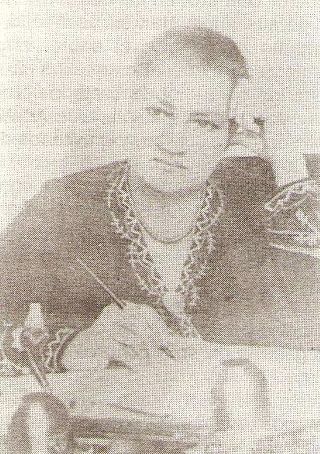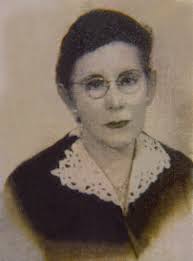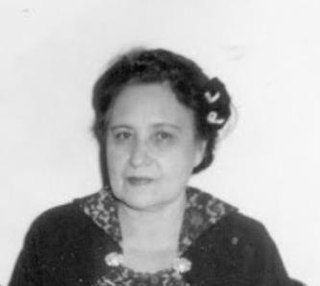Related Research Articles

Carlos Roberto Reina Idiáquez was a Honduran politician, lawyer and diplomat who served as the 32nd President of Honduras from January 27, 1994 to January 27, 1998. He was a member of the Honduran Liberal Party.

Lucila Gamero de Medina was a Honduran romantic novelist. She was the first woman in Honduras to produce literary work and in Central America to publish novels. Critic and writer Luis Marín Otero called her "the grand dame of Honduran letters". She was trained as a physician and pharmacist and though prevented from studying at the university was awarded a diploma of Medicine and Surgery from the dean of the Faculty of Medicine. She headed a hospital and served as a health inspector in her native department. In addition to her medical and literary efforts, Gamero was an active feminist and suffragette, attending conferences and participating in the founding of the Comité Femenino Hondureño.

General elections were held in Honduras on 24 November 1985. Voters went to the polls to elect a new President of the Republic and a new Congress.

General elections were held in Honduras on 27 November 1993. Voters cast a single ballot for both the presidential and Congressional election.

Constituent Assembly elections were held in Honduras on 20 April 1980. In July the Assembly elected Policarpo Paz García as president.
General elections were held in Honduras on 28 March 1971. Voters went to the polls to elect a new President of the Republic and a new Congress. The two main parties, the National Party and Liberal Party, had agreed before the election to split the Congressional seats equally between them, with each party being awarded 32 of the 64 seats. Additional one seat was to be allocated to the winner of the presidential elections as the president was entitled to one seat in parliament, while both parties were to be equally represented in the Supreme Court in all state institutions including the Government. Ramón Ernesto Cruz Uclés of the National Party won the presidential election with 53% of the vote. Approximately 40% out of total of around 900,000 voters abstained from voting at the elections. Some of the major topics at the elections was the issue of commitment to continued participation in the Central American Common Market and approach to the relations with El Salvador after the Football War.

Constituent Assembly elections were held in Honduras on 22 September 1957. In November the Assembly elected Ramón Villeda Morales as president.

Constituent Assembly elections were held in Honduras on 7 October 1956. Prior to the elections, President Julio Lozano Díaz established his own party, the Party of National Unity. The elections were allegedly heavily rigged and the PUN won all 58 seats.

General elections were held in Honduras on 10 October 1954. The elections were relatively honest. and saw Ramón Villeda Morales of the Liberal Party emerge as the most popular presidential candidate with 48% of the vote. However, the constitution required Congress to confirm the president if no candidate received a majority in the popular vote. The Liberals did not have a majority in Congress, and the National Party and National Reformist Movement (MNR) agreed to block Villeda's candidacy, although they were unable to agree on a candidate of their own. The two parties boycotted the confirmation session in November – an idea proposed by US Ambassador Whitting Willauer – meaning those present did not form a quorum.

General elections were held in Honduras on 10 October 1948. The elections were boycotted by the Liberal Party as the party was restricted from campaigning. Instead, they called for the electorate to abstain from voting.

General elections were held in Honduras on 28 October 1932. Voters went to the polls to elect a new President of the Republic and a new Congress.
The Movement for Socialism was a political movement in Honduras, active inside the Christian Democratic Party of Honduras (PDCH).}
The Honduran Patriotic Front was a coalition of political groups active in Honduras in the early 1980s.
José Aníbal Delgado Fiallos was a Honduran scholar, political analyst and politician.
María Cristina Pineda Suazo (1954) is a Honduran astronomer, physicist, civil engineer, professor, and scientific investigator. She was Director of the Astronomical Research Center (CEACS-UNAH), and currently serves as dean in the Faculty of Spatial Sciences (FACES) at the Universidad Nacional Autónoma de Honduras. She belongs to several scientific organizations, including the International Astronomical Union (IAU), the Asamblea de Astrónomos de América Central (AAAC), and the Fundación Salvador Moncada para el Avance de la Ciencia. Pineda also serves as President of the National Committee for Astronomy in Honduras.

Francisca Raquel Navas Gardela, better known as Paca Navas (1883–1971), was a Honduran journalist, writer and feminist. She founded the first feminist journal in Honduras and was a member of the first suffragette organization. She and her husband spent most of their lives in exile due to their liberal leanings. Her most productive writing period was during her Guatemalan exile from 1945 to 1951.

Arab immigration to the Republic of Honduras began in the 19th century with the liberal reforms of President Marco Aurelio Soto (1876–1883), who saw immigration as a determining factor in the development of capitalism in Central America, and sought to establish an attractive environment for foreign investment. The largest Arab community in Honduras is the people of Palestinian descent, the majority of whom (95%) are Christian. The approximate population of Honduran Arabs is more than 300,000 people, around 280,000 Palestinians and 20,000 Lebanese, estimates place the Muslim population at about 11,000.

Graciela Bográn was a Honduran teacher, writer and women's rights activist, she was the daughter of Chelsea Bogran. Engaged in the fight for women's suffrage, she was involved in both the trade union movement and political protests. She was also well-known as the editor of the feminist journal Alma Latina. After women won the right to vote, she was appointed to serve on the cabinet in the Department of Public Education. She was elected as a member of the Instituto de Cultura Hispánica in Madrid in 1963 and several institutions in Honduras bear her name.
The Ramón Rosa National Literature Award is an honor presented annually by the President of Honduras.

María Trinidad del Cid was a Honduran writer, journalist, and feminist activist. She is considered a foundational figure in the fight for women's rights in Honduras.
References
- 1 2 Mario Posas (1981). El movimiento campesino hondureño: una perspectiva general. Editorial Guaymuras. p. 19.
- ↑ Martiniano Lombraña (1989). Historia de las organizaciones campesinas de Honduras. M. Lombraña. p. 30.
- 1 2 3 4 5 Boletín. L'Agence. 1980. p. 280.
- ↑ Marvin Barahona (2005). Honduras en el siglo XX: una síntesis histórica. Editorial Guaymuras. p. 234. ISBN 978-99926-33-36-6.
- ↑ Will G. Ochoa (1981). Estudios sociales: Honduras en mapas : 1er. Curso Ciclo Común Es-101 y Es-102. p. 147.
- 1 2 Los hechos hablan por sí mismos: informe preliminar sobre los desaparecidos en Honduras 1980-1993. Editorial Guaymuras. 2002. p. 34. ISBN 978-99926-28-07-2.
- ↑ 1991 32nd (1 August 1991). EUROPA WORLD YRBK 1991 2V. Taylor & Francis. p. 1286. ISBN 9780946653690.
{{cite book}}: CS1 maint: numeric names: authors list (link) - ↑ Boletín del Sistema Bibliotecario de la UNAH. Sistema Bibliotecario de la UNAH. 1982. p. 12.
- ↑ Mario Posas (1989). Modalidades del proceso de democratización en Honduras. Fundacion Friedrich Ebert. p. 70.
- ↑ NACLA Report on the Americas. North American Congress on Latin America. 1981. p. 33.
- ↑ Mario Posas (1989). Modalidades del proceso de democratización en Honduras. Fundacion Friedrich Ebert. pp. 79–80.
- ↑ Pensamiento hondureño. Imprenta Calderón. 1986. p. 82.